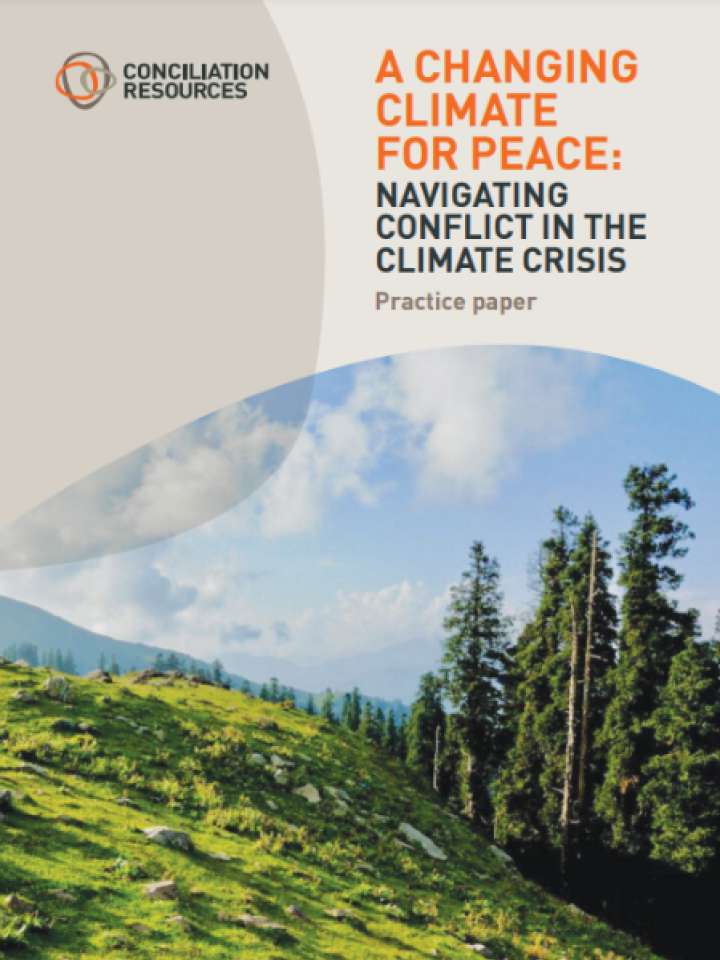A changing climate for peace: Navigating conflict in the climate crisis
This paper is based on the experience of peace and climate change programming in the Bangsamoro, in the Philippines, Karamoja in Uganda, and Kashmir. Examples of interventions from these three contexts illustrate how peacebuilders can support better coordination and collaboration among governments and communities, drawing on local knowledge and expertise of people on the frontline of climate change and conflict.
Whilst the impacts of climate change and their relationship with conflict dynamics and actors vary significantly between contexts, and any responses or actions must be contextualised – the study identifies common principles to address these issues. These principles should inform peacebuilding actions that respond to the growing issues of climate change, and principles for more conflict-sensitive climate change responses. Finally, the paper draws out common barriers that peacebuilding organisations need to overcome and proposes priorities for action. This paper is the first paper of two looking at climate change and conflict. The second, Gender, climate change and conflict: understanding the relationships, explores the gendered norms and expectations that affect this intersection.
Explore further
